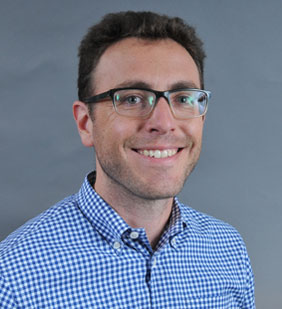
Jason Rodriquez
Area of Expertise
Medical sociology, aging and the life course, work & occupations, disability, identity, emotions, and qualitative methodology.
Degrees
PhD, Sociology, University of Massachusetts Amherst
Professional Publications & Contributions
Peer-Reviewed Books
2025
Rodriquez, Jason. On the Frontlines of Crisis: Intensive Care and the Challenge of COVID-19. New Brunswick, NJ: Rutgers University Press. Series on Critical Issues in Health and Medicine
2014
Jason Rodriquez. Labors of Love: Nursing Homes and the Structures of Care Work. New York and London: New York University Press.
Peer-Reviewed Articles
2025
Rodriquez, Jason, Nathan Barrett, Abigail Dwyer, and Gary Siperstein. “From the Coach’s Perspective: Making Interscholastic Sports Inclusive for Students with and without Intellectual and Developmental Disabilities” Journal of Teaching in Physical Education
2023
Rodriquez Jason. “Becoming futile: the emotional pain of treating COVID-19 patients.” Frontiers in Sociology 2(2023): 1231638
2023
Rodriquez, Jason, Anmol Gupta, Staci Ballard, and Gary Siperstein. “Positive Identity Development through Community Engagement Among Emergent Adults with Intellectual and Developmental Disabilities.” Journal of Applied Research in Intellectual Disabilities 36(4): 758-767.
2023
Jason Rodriquez. “Reconfiguring the social organization of work in the intensive care unit: Changed relationships and new roles during COVID-19.” Social Science & Medicine 317 (2023): 115600.
2022
Jason Rodriquez, Anika Lanser, Holly E. Jacobs, Ashlyn Smith, Sharbari Ganguly. “When the Normative is Formative: Parents’ Perceptions of the Impacts of Inclusive Sports Programs.” International Journal of Environmental Research and Public Health 19 (17):10889.
2022
Siperstein, Gary N., Staci C. Ballard, Holly E. Jacobs, Jason Rodriquez, and Timothy P. Shriver. “‘A Place for Everybody’: Students’ Perspectives on Inclusive Behavior in School.” Educational Researcher (May 2022).
2020
Rodriquez, Jason. Negotiating Medical Authority: Shared Decision-Making in the ICU. Symbolic Interaction. p. n/a, First published Sept. 15, 2020. Vol 44(3): 555-575
2018
Rodriquez, Jason and Kathrin Boerner. “Social and Organizational Practices that Influence Hospice Utilization in Nursing Homes.” Journal of Aging Studies 46 (September):76–81.
2018
Kathrin Boerner, Jason Rodriquez, Emma Quach, and Meghan Hendrickson. "Implementing the MOLST (Medical Order for Life-Sustaining Treatments): Challenges Faced by Nursing Home Staff." Geriatric Nursing 39(4):465–470
2018
Rodriquez, Jason and Susan D. Scott. “When Clinicians Drop Out and Start Over After an Adverse Clinical Event.” Joint Commission Journal on Quality and Patient Safety 44(3):137–145
2017
Rodriquez, Jason. “Doing More with Less: Intensive Care and the Logic of Flexible Teamwork.” Research in the Sociology of Work: Emerging Conceptions of Work, Management, and the Labor Market 30:117–140
2015
Rodriquez, Jason. “Who is on the Medical Team?: Shifting the Boundaries of Belonging on the ICU.” Social Science & Medicine 144 (November 2015):112–
2013
Rodriquez, Jason. “Narrating Dementia: Self and Community in an Online Forum.” Qualitative Health Research 23(9): 1215–1227.
2011
Rodriquez, Jason. “It’s a Dignity Thing”: Nursing Home Care Workers’ Use of Emotions.” Sociological Forum 26(2):265–286.
2009
Rodriquez, Jason. “Attributions of Agency and the Construction of Moral Order: Dementia, Death, and Dignity in Nursing Home Care.” Social Psychology Quarterly 72(2):165–179
2009
McCorkel, Jill and Jason Rodriquez. "Are you an African?”: The Politics of Self-Construction in Status-Based Social Movements." Social Problems, 56(2):357–384.
2006
Jason Rodriquez. “Color-Blind Ideology and the Cultural Appropriation of Hip-Hop.” The Journal of Contemporary Ethnography 35(6):645–668.
Book Reviews
2021
Doctors’ Orders: The Making of Status Hierarchies in an Elite Profession, by Tania M. Jenkins. Columbia University Press: New York. Symbolic Interaction p. n/a, first published Nov 23, 2021.
2020
Speaking for the Dying: Life-and-Death Decisions in Intensive Care, by Susan P. Shapiro. University of Chicago Press: Chicago and London. Social Forces 99(1): e13–e13.
2017
Living with Alzheimer’s: Managing Memory Loss, Identity, and Illness, by Renée L. Beard. New York and London: New York University Press. Contemporary Sociology 46(5):536–537
2016
Caring on the Clock: The Complexities and Contradictions of Paid-Care Work. Edited by Mignon Duffy, Amy Armenia, and Clare Stacey. New Brunswick, NJ: Rutgers University Press. Work and Occupations 43(Feb 2016):114–116
2015
The New Neighborhood Senior Center: Redefining Social and Service Roles for the Baby Boom Generation by Joyce Weil. New Brunswick, NJ: Rutgers University Press. American Journal of Sociology 121(2):638–640
Additional Information
Rodriquez's current research focuses on two areas: 1) How do health care workers, especially those who work in intensive care, manage the tensions and dilemmas embedded in their everyday work routines? He recent work has examined how ICU staff manage patients' family members involvement in end-of-life decision making and is currently working on a study about how the COVID-19 pandemic changed the social organization of work in intensive care. 2) How can schools and communities enhance the social inclusion of children with intellectual and developmental disabilities? To this end, his recent work with the UMB Center for Social Development and Education has looked at students' perspectives of inclusive behavior in schools and parents' perceptions of the impacts of inclusive sports programs. Rodriquez and colleagues are currently working on a study that examines how inclusive clubs at the high school level shape identity development among youth with and without intellectual and developmental disabilities.
Rodriquez's prior work has examined care work in the nursing home industry and the utilization of hospice care in nursing homes. His book, Labors of Love: Nursing Homes and the Structures of Care Work, published by NYU Press (2014), showed how the fee-for-service payment system shapes nursing home care. In one respect, this system turns residents into an embodiment of reimbursable activities. The regulatory system exacerbates this pressure, normalizing chronic understaffing and work overload. In another respect, however, the system also sets the terms in which workers resist. In his work on hospice care, Rodriquez and colleagues revealed how a range of social and organizational forces shape whether a person in a nursing home will receive hospice care at the end of their life.
